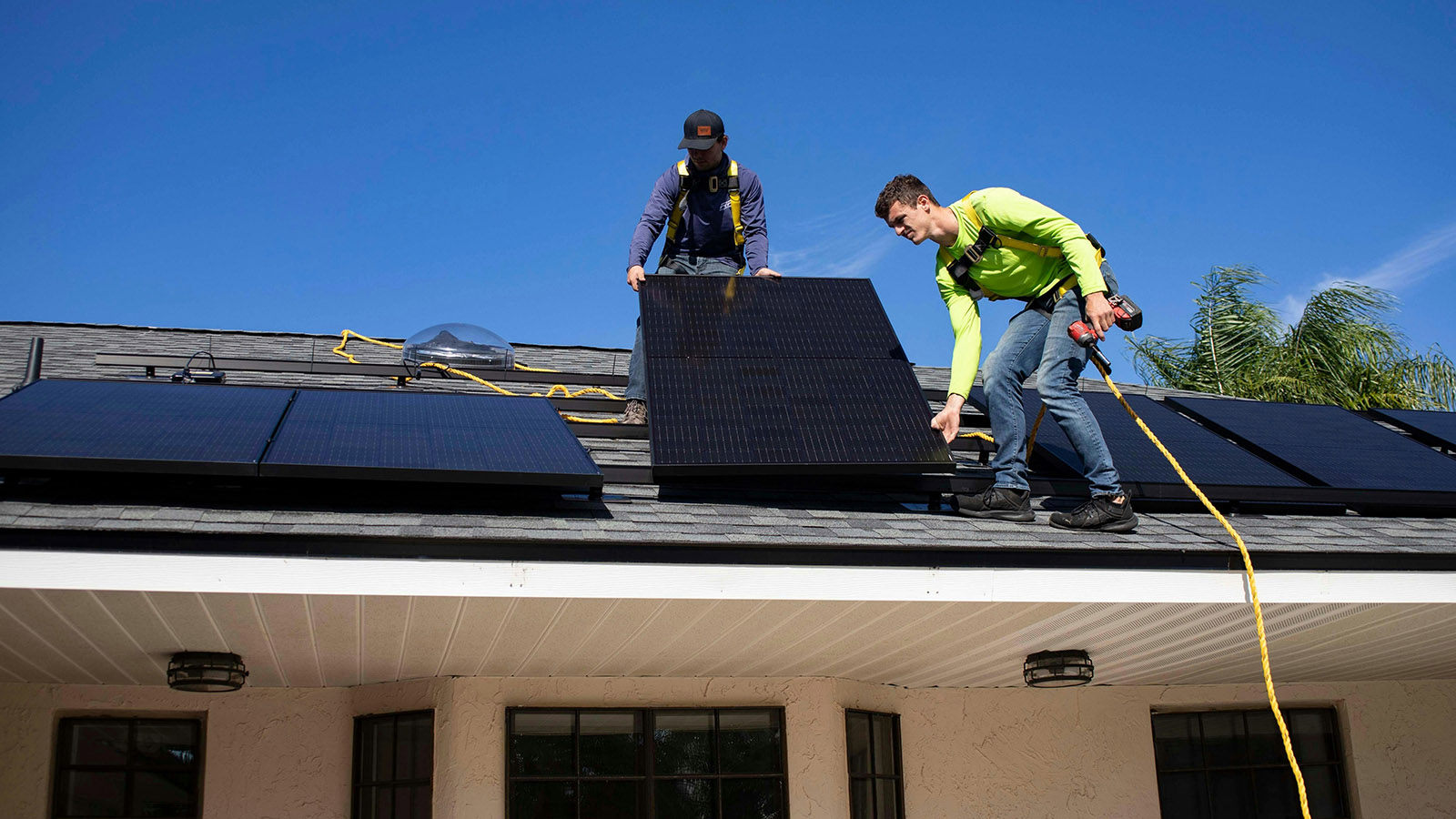We’re in a climate crisis caused primarily by the burning of fossil fuels.
For decades, renewable energy has been hailed as one of the main solutions because, by converting the natural power of the sun, sea, and wind into electricity, we can fuel our lives and economies without thickening the blanket of greenhouse gases in our atmosphere.
According to the International Renewable Energy Agency (IRENA), the global renewable energy workforce was around 12.7 million people in 2021. 1
And, as the green transition accelerates, IRENA expects the number of jobs in renewables to grow to 42 million by 2050, four times their current level. 2
So what’s actually driving this growth? And how can you take advantage of it?
Government policies
Around the world, governments are implementing bold policies to support the development of renewable energy.
These vary from country to country, but generally include tax breaks, subsidies, and renewable portfolio standards (RPS), which force energy suppliers to provide customers with a minimum share of electricity from renewable sources.
Take the US Inflation Reduction Act, for example. This landmark legislation, signed into law by President Biden in August 2022:
- Extends the Investment Tax Credit (ITC) for solar and wind projects through 2025 (this provides a 30% tax credit to those who install a solar or wind system between 2022 and 2032)
- Expands the ITC for solar projects to include commercial and industrial projects
- Creates a new Clean Electricity Production Tax Credit (CEPTC) for solar and wind projects
- Extends the Production Tax Credit (PTC) for wind projects through 2024
Technological advances
Solar panels and wind turbines aren’t new.
Their origins trace all the way back to the late 1800s, except the panels and turbines of today are much more advanced than they were back then.
Rather than powering small calculators and lightbulbs, solar and wind power are now capable of powering entire households, cities, and even countries. The technology is more efficient and affordable than ever before, and it’s only going to improve over the coming decades.
But it’s not just clean energy generation that’s changed over the years. Energy storage has too.
Since the 1990s, lithium-ion batteries have evolved from powering small products like mobile phones and laptops to large-scale, critical infrastructure like transport networks and energy grids.
As the supply of renewable energy increases, so will the need for battery storage that’s safe, reliable, and efficient - which means more career opportunities for you.
Consumer demand
The world is waking up, and people are realising the many benefits renewable energy brings.
Consumers – particularly Gen Z and millenials – are voting with their money. A US poll recently indicated that 64% of these demographics prefer renewable energy over fossil fuels, and another poll showed Gen Z and millennials are most willing to boycott companies that aren’t eco-conscious (55% and 50% respectively).
This is partly why companies are increasingly prioritising their own sustainability journeys and renewable energy transitions.
But it goes beyond ethics and morals. It makes economic sense too.
The cost of renewable energies like solar and wind has been decreasing over recent years, and, in many places around the world, it’s now the most affordable option – and, fortunately, the cleanest.
The IEA predicts that renewable energy will rise from 29% in 2022 to 35% of global power generation by 2025 3, which indicates significant growth in the adoption of clean energy sources.
Investments
Where money flows, employment grows.
In 2004, global investment in renewable energy reached $32bn. In 2022, it reached $495bn – a 15x increase in only 18 years.
And momentum is still building. The world is waking up (either by personal choice or natural force) to the science, scale, and reality of the climate crisis, and it’s becoming increasingly clear to many people that there’s no future in fossil fuels.
Furthermore, the UN has confirmed every dollar of investment in renewables creates three times more jobs than it would in the fossil fuel industry. 4
So what does this mean for renewable energy jobs?
Security, variety, and longevity.
People of all backgrounds and skill sets will be needed to make renewable energy the world’s primary power source.
From solar PV installers and wind turbine technicians to policymakers and marketing professionals, the demand for willing and able candidates is going to grow exponentially.
To give yourself a head start and be made aware of opportunities that suit you as soon as they become available, make sure you’re following us on LinkedIn and X, and don’t forget to subscribe to our newsletter.
1 Renewable Energy and Jobs - Annual Review 2022, IRENA, 2023
2 Global Renewables Outlook: Energy transformation 2050, IRENA, 2020
3 Electricity Market Report 2023, IEA (p. 7)
4 Renewable energy – powering a safer future, UN, 2023
Article by Andy Robinson
Published on September 21, 2023
Share this blog post with your folks, and help them find a career to be proud of.



